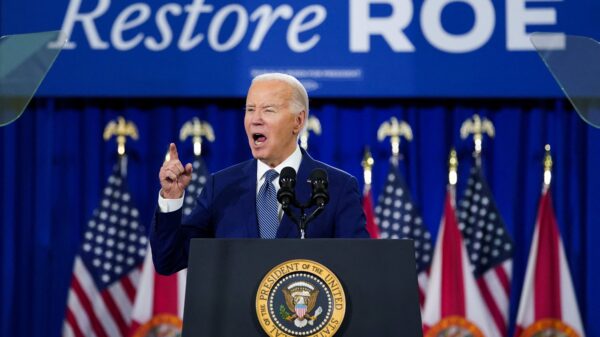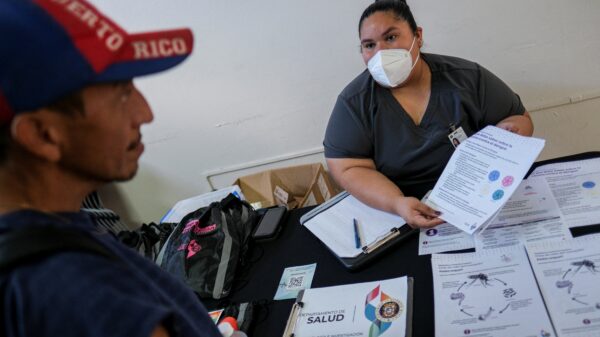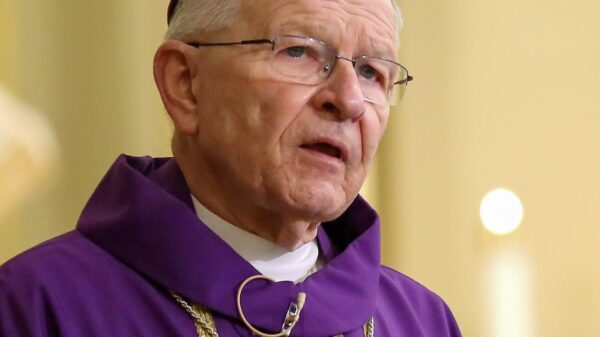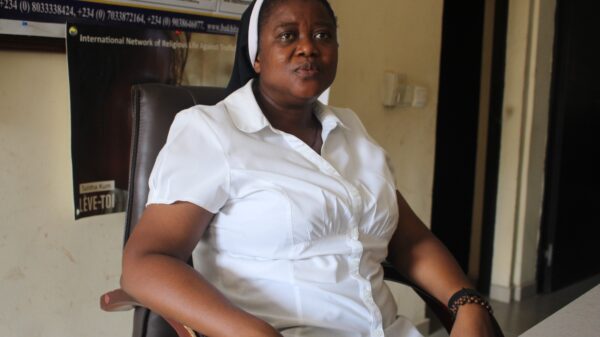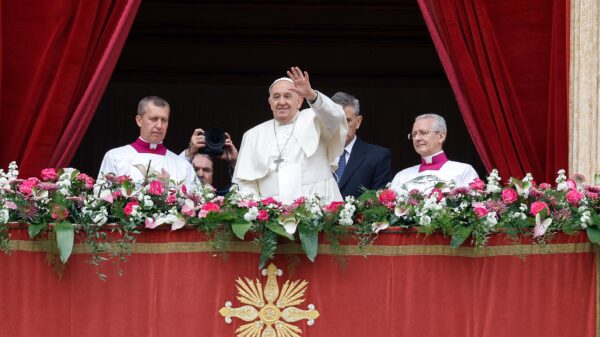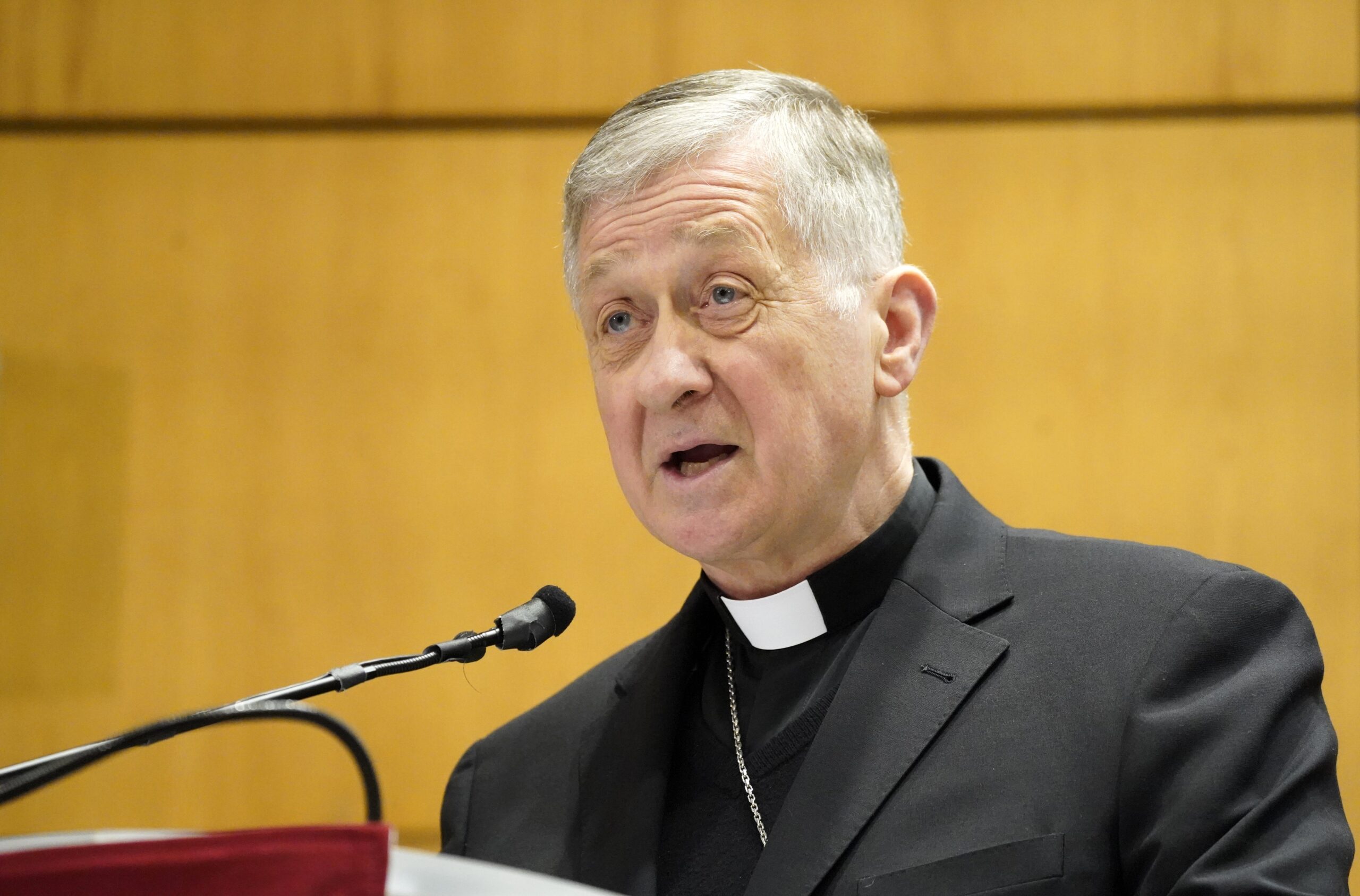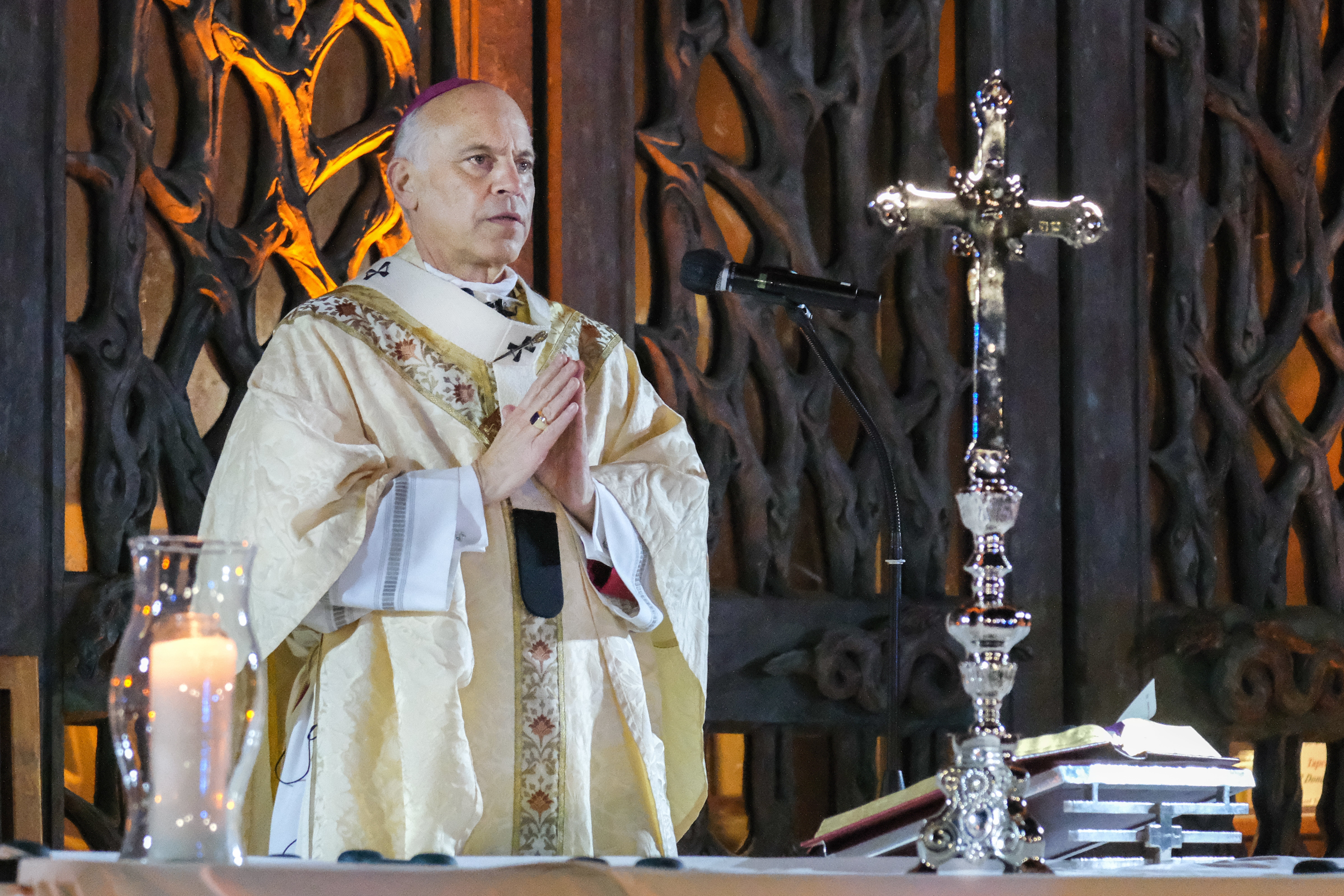NEW YORK (OSV News) — Cardinal Blase J. Cupich of Chicago challenged the Catholic faithful and hierarchy to overcome bitter divisions by embracing the consistent ethic of life to live the mission of the Gospel in a polarized time. He spoke Sept 26 at Jesuit-run Fordham University in New York.
Forty years after Chicago Cardinal Joseph L. Bernardin set out his “consistent ethic of life” insights in a landmark address at the same campus, Cardinal Cupich said those principles should be applied to a new “integral ethic of solidarity.”
“As a community of believers, we find ourselves beset by division, buffeted by a set of new questions about the church’s relationship with the wider society, and even with itself. In many ways, we need this teaching now more than ever,” he said.
Cardinal Cupich said Cardinal Bernardin believed that the spectrum of life cuts across many issues, including genetics, abortion, capital punishment, modern warfare and the care of the terminally ill. Nonetheless, all these diverse issues are rooted in a single principle of Catholic faith: that the loss of even one human life is a momentous event. Seen in this context, all of the issues share a common identity in their denial of the right to life. That commonality calls for a consistent approach.
He quoted Cardinal Bernardin’s address: “Those who defend the right to life of the weakest among us must be equally visible in support of the quality of life of the powerless among us.”
Cardinal Cupich acknowledged the consistent ethic of life argument was not well received throughout the church; some feared it would water down Catholic teaching against abortion and others were reluctant to fold opposition to abortion into advocacy for other social justice issues.
As Cardinal Bernardin developed the teaching in the 1980s, Cardinal Cupich said his predecessor “had come to realize what Pope Francis has continually emphasized in his approach to the social teachings of the church: namely, that all threats to human dignity are intertwined, not simply by logical consistency, but by reality itself, as diverse threats to life tend to reinforce one another. Or, as the Holy Father has put it time and again: ‘Realities are more important than ideas.'”
Cardinal Cupich described changes that have emerged since Cardinal Bernardin delivered his address and how the church might respond. In the wake of the U.S. Supreme Court’s Dobbs decision to overturn Roe v. Wade, he said “the church must redouble its efforts to advocate for policies that make it easier for parents to choose to have children and then to raise them. This includes guaranteed paid family leave, affordable child care, and workplace protections for expectant mothers.”
Climate change threatens the future of humanity and affects the poor in a disproportionate way, he said, noting it could be combated by building national infrastructure for renewable energy. New technologies bring benefits and threats, he added, but decisions about their use must include moral considerations.
Pope Francis’ papacy has focused on proclaiming the essential truths of the Gospel, and the importance of the church going out to the world to heal its wounds, rather than closing in on itself. Cardinal Cupich said, “Pope Francis inherits, re-presents and adapts the ideas at the heart of the consistent ethic of life. … Not only does he present church teachings in their full context, but he also structures many of his teachings according to his abiding belief in the power of the Holy Spirit to bring God’s children together. This is one of the driving ideas behind his call for the church to become ever more synodal.”
The current polarization in civil and ecclesial life arose because issues were treated in isolation, he said, adding people today are living in isolation from one another, subject to fear which is the great enemy of dialogue.
Cardinal Cupich said his proposed “integral ethic of solidarity” would incorporate both common human reason and Scripture, be rooted in prayer and animated by the virtue of compassion or empathy. It must have a deep global perspective and be synodal.
In a question-and-answer session after his address, Cardinal Cupich drew applause when he said it is time for the American bishops to “step forward and galvanize sentiment” about climate change.
“People say abortion is foundational, and I agree you have to protect life. But if you take the image of a foundation of a house: if the neighborhood is on fire, you want to protect the foundation and also pay attention to the fire,” he said.
Bishops’ teaching on abortion in the post-Dodd decision landscape must be morally correct and tactically aware, Cardinal Cupich said.
“You’re not going to move things forward if you’re just hammering away at one or two issues. You have to invite people to be moved by the Gospel,” he said.
It is important to “stick to the core values and fundamental beliefs. Jesus rose from the dead to breathe the Spirit on the disciples and send them into the world,” he said. “We empower people to take up the mission of the Gospel. If we start there, the rest will fall into place.”
He also said the U.S. Conference of Catholic Bishops’ “Faithful Citizenship” document, a guide for the faithful applying Catholic social teaching to current policies and political concerns facing U.S. society, should be completely rewritten to reflect the impact of Pope Francis’ magisterium on life issues. A new version also should address current threats to values that are the core of democracy, he added.
The event, “An Integral Ethic of Solidarity: Cardinal Cupich on the Enduring Legacy of Cardinal Joseph Bernardin,” was organized by Fordham’s Center on Religion and Culture and Curran Center for American Catholic Studies.
Beth Griffin writes for OSV News from New York.


